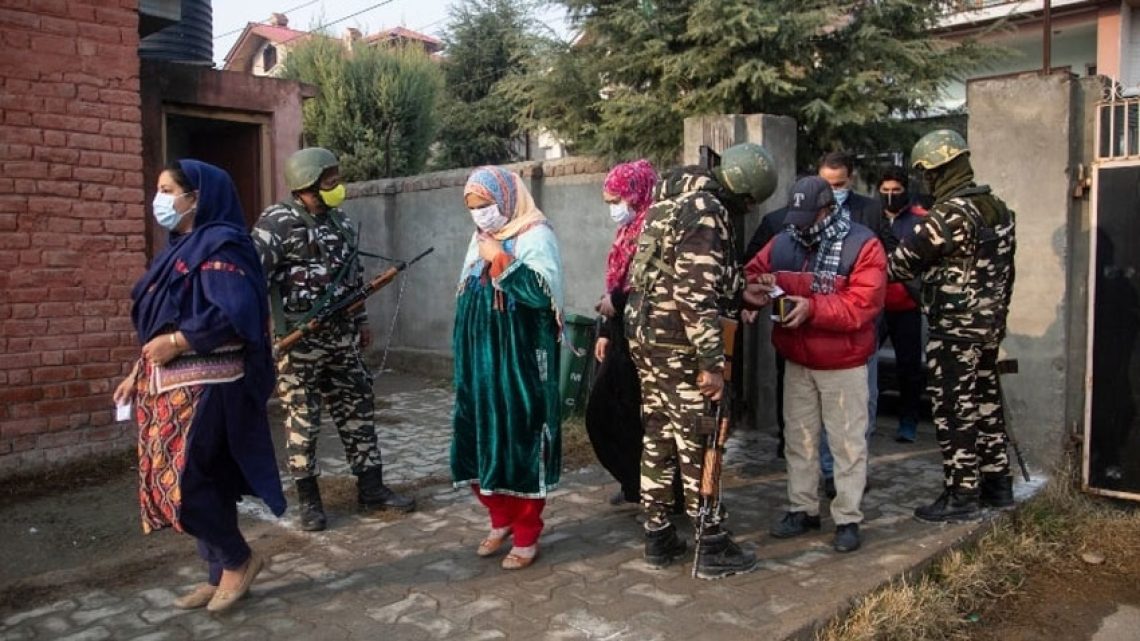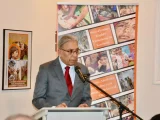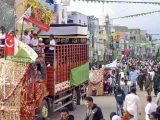
Jammu and Kashmir Elections: A Deception
September 18, 2024In the realm of politics, allegiances shift constantly, with interests taking precedence over loyalty. In Indian illegally occupied Jammu and Kashmir (IIOJK), the struggle for freedom revolves around two opposing forces: status quo advocates and those challenging it. Freedom fighters avoid actions that reinforce the status quo.
Military control remains a daily reality in Indian-illegally occupied Jammu and Kashmir (IIOJK). Understanding New Delhi’s attempts to mask military rule with democratic processes is crucial for Kashmiris. Local elections are designed to maintain military dominance rather than represent the populace. As Emma Goldman famously noted, “If the vote changed anything, they would make it illegal.” Thus, elections serve only the interests that uphold the status quo.
The on-going assembly elections in IIOJK follow a long history of manipulation. The 1987 elections were particularly significant, marking a shift from electoral politics to armed resistance. The Muslim United Front (MUF), now the All Parties Hurriyat Conference (APHC), emerged due to widespread electoral fraud.
Currently, political maneuvering involves 90 assembly seats, with a significant number allocated to Jammu. After Ladakh’s separation, regional parties are strategizing: the National Conference (NC) and Congress are fielding candidates, while the People’s Democratic Party (PDP) and others also join the fray. However, since August 2019, New Delhi has exercised direct control over elections, leaving parties without substantial platforms or mandates.
Despite the façade of democracy, the core issues remain unaddressed. The 1987 elections serve as a reminder of the futility of expecting genuine change under current conditions. Candidates are contesting insufficient seats to form a government independently, necessitating coalitions that lack credibility.
Legislation for democratic rights in Kashmir exists, but its implementation is problematic. Constitutional guarantees in India are often selectively enforced in Kashmir. The disparity between legal frameworks and their application highlights a critical need for clarity.
India’s nuclear ambitions, often presented under a benign facade, illustrate its broader strategy. The country employs a blend of realpolitik and classical political philosophies to maintain its grip on power in Kashmir. While the Indian Constitution promises freedoms, these rights are largely curtailed for Kashmiris.
Historical context matters significantly; the author’s experiences during the 1987 elections underscore the cyclical nature of political manipulation. The consistency of actors and strategies suggests that future elections will yield similar results: coalitions lacking stability. New Delhi prioritizes voter turnout as a form of legitimacy, despite widespread skepticism about participation.
Elections in IIOJK do not equate to self-determination, a right affirmed by UN resolutions. The manipulation of electoral processes only serves to reinforce existing power dynamics. Recent elections are likely to repeat past outcomes, highlighting the ongoing struggle for Kashmiris to assert their rights amid political and military pressures.
In this context, the Indian government will continue to use democratic pretenses to justify its actions, all while restricting the rights of those who seek genuine self-determination.

